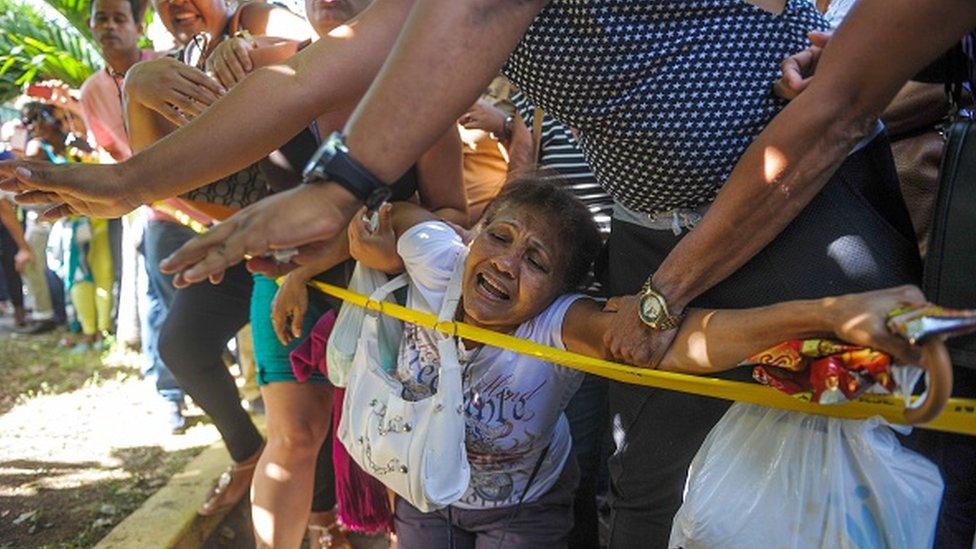Cuba and US to restore postal service after 52 years
- Published
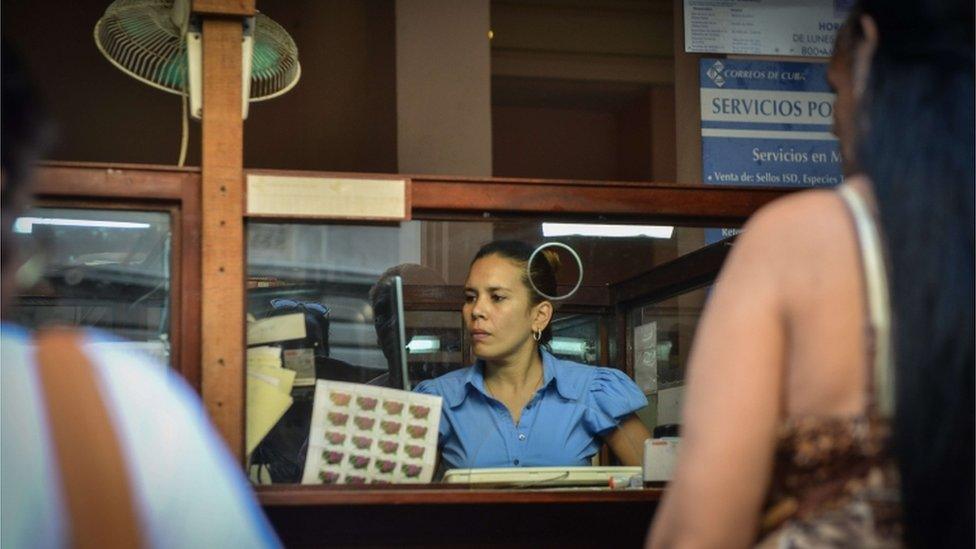
The Cuban and the American postal services will initially run a pilot plan for direct post
Cuba and the United States have agreed to restore a direct postal service, suspended 52 years ago at the height of the Cold War.
A pilot postal service will be launched shortly, but it is not clear when a full service will be implemented.
The move is part of the rapprochement process that was announced by presidents Barack Obama and Raul Castro on 17 December last year.
The two countries have since restored diplomatic ties and reopened embassies.
Cuba and the US began re-establishing postal links in 2013, before the change of policy was announced.
Mail and parcels between Cuba and the US have been re-routed through a third country, usually Mexico or Canada.
In March, direct phone connections with the US were restored after more than 15 years.
Previously, phone calls also needed to go through a third country.
While delays in the postal services have caused frustration for decades, their use in the 21st Century is becoming limited, says the BBC's Will Grant in Havana.
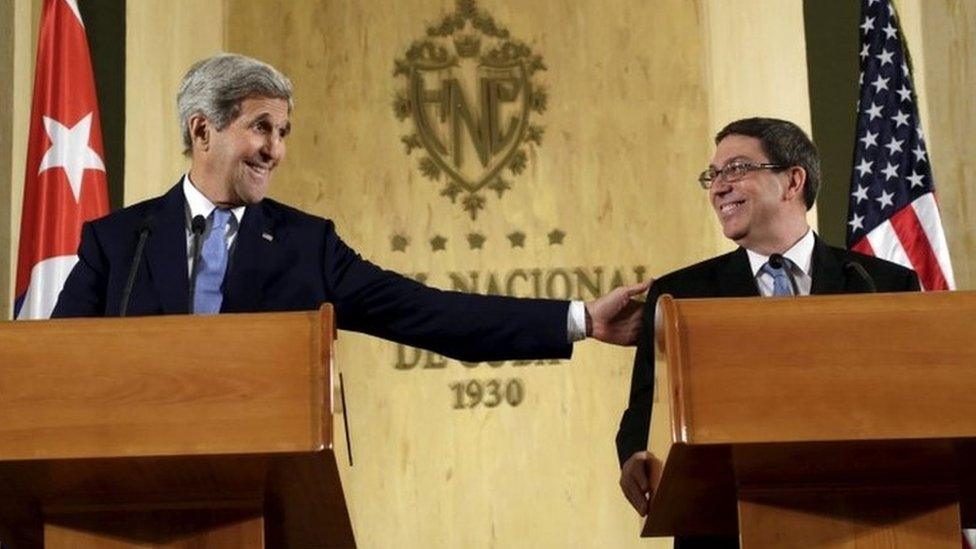
Secretary of State John Kerry and Foreign Minister Bruno Rodriguez eased regulations in September for American companies willing to do business in Cuba
Couriers carry mail and small packages between Miami and Havana on a regular basis.
And as the communist-run island gradually opens up to the internet, new generations of Cubans are writing fewer letters than their parents and grandparents used to, adds our correspondent.
US embargo
Despite remarkable improvement in relations in recent years, Cuba says that relations will not be fully normalised until the US pulls out of Guantanamo Bay and lifts an economic embargo imposed on the communist-run island.
The US broke off diplomatic relations with Cuba in 1959 after Fidel Castro and his brother Raul led a revolution toppling US-backed President Fulgencio Batista.
Cuba established a revolutionary socialist state with close ties to the Soviet Union.
The following year, the US imposed a trade embargo covering nearly all exports to Cuba.
This was expanded by President John F Kennedy into a full economic embargo that included stringent travel restrictions.
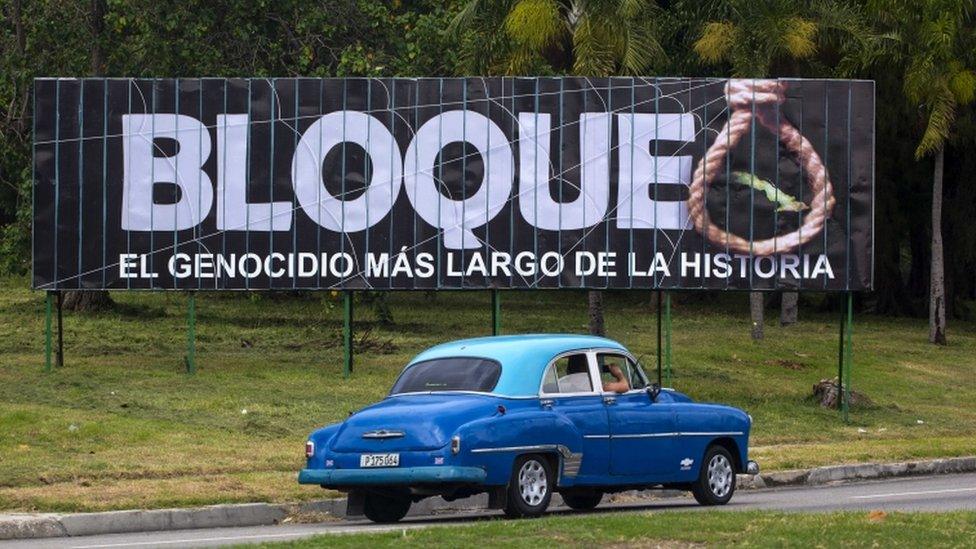
"Blockade, the longest genocide in history," reads a billboard in Havana
The embargo is estimated to have cost the Cuban economy more than $1.1tn and the US economy $1.2bn a year.
Mr Obama has also called for the embargo to be lifted, saying it had "failed to improve the lives of the Cuban people".
But the change needs to be approved by the Congress, which is controlled by the Republican opposition.
- Published29 September 2015
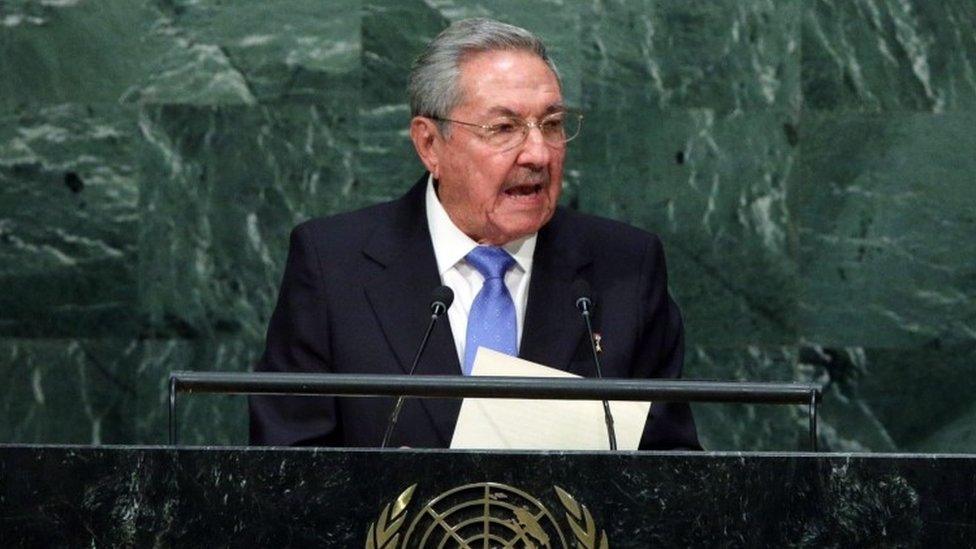
- Published12 March 2015
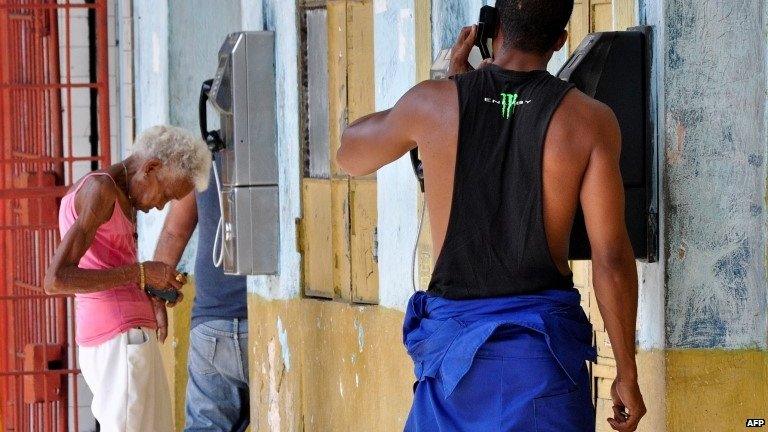
- Published1 December 2015
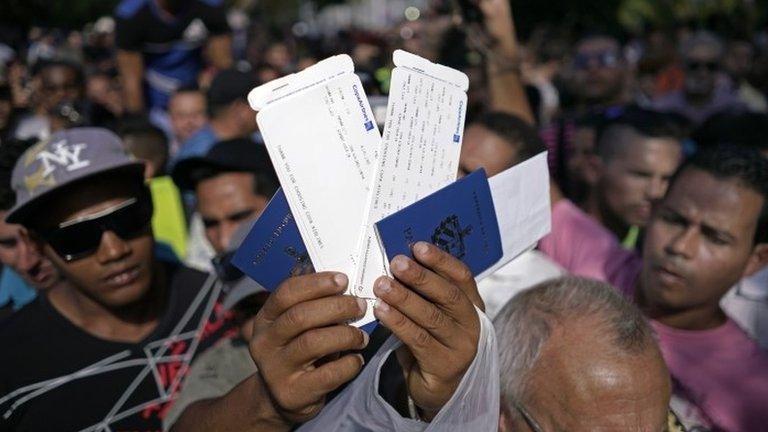
- Published1 December 2015
